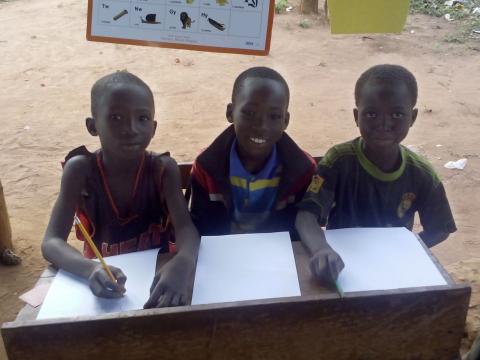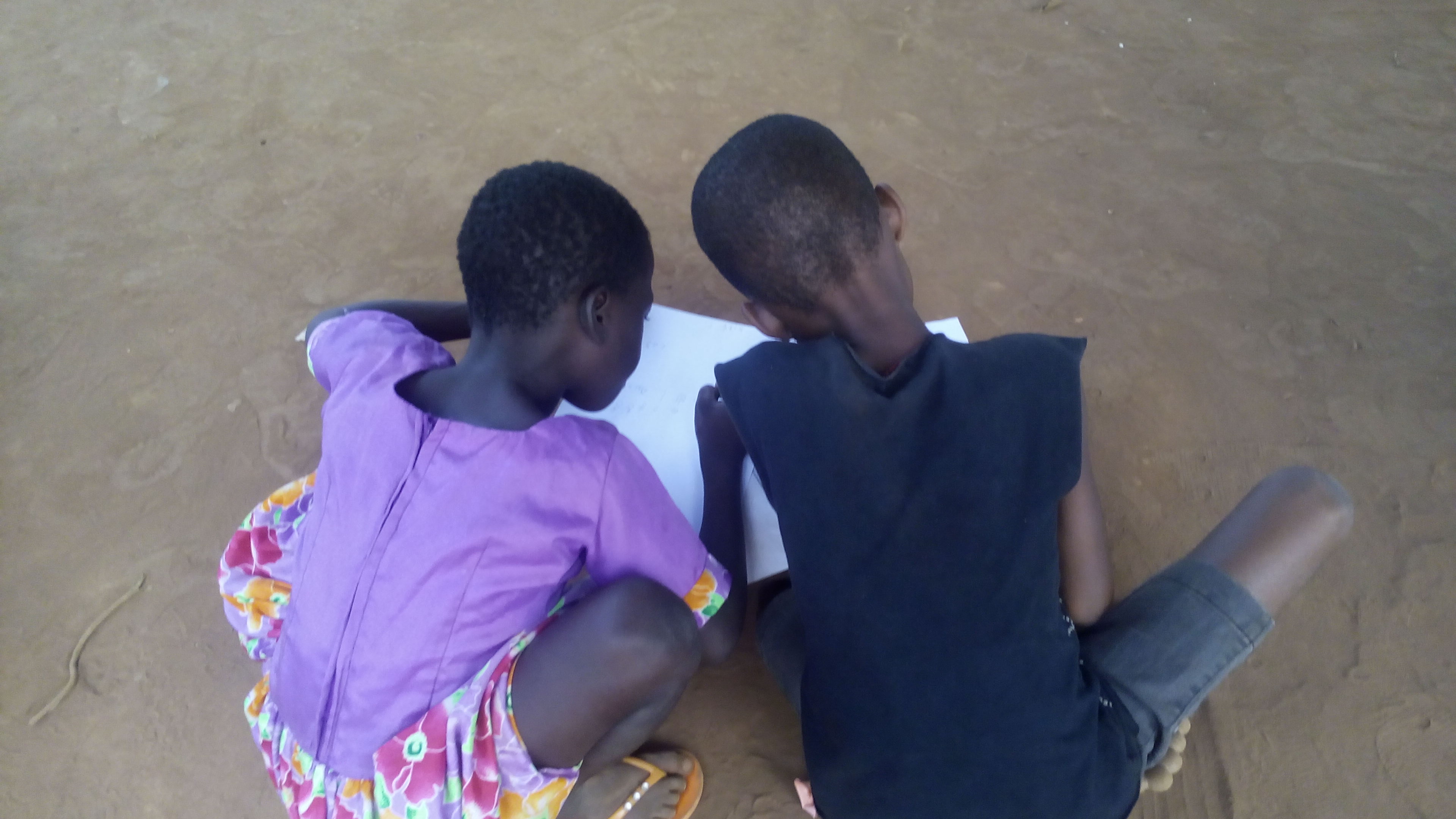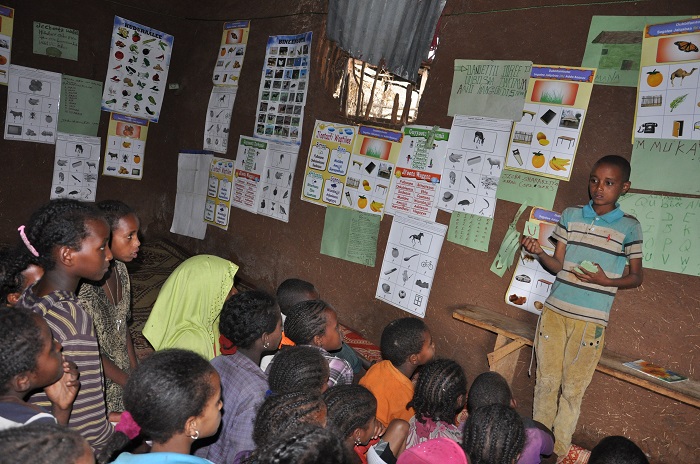Creating “magical” moments in education

As a basic education specialist at World Vision, one of the perks of my job is seeing the joy on a child’s face when they learn to read. I’m sure you’ve seen it too: whether with your own children or with the special children in your life. (If not, you’ll have to trust me that it’s magical. It’s like watching a light turn on in a dark room!)
While on a recent trip to Ghana I was able to observe a reading club – an after-school learning group where children build their literacy skills. This club happened to have 65 children present. Reading clubs typically allow 35 children to participate in one session, but the demand in this community was so high that volunteer facilitators couldn’t turn children away. I could see why. Their laughter and excitement was infectious. How could anyone turn a child away who wants to learn?
Take a virtual tour of a reading club.
This particular club didn’t have any books yet (there was a purchasing delay – which has since been remedied). So a young boy got up in front of the class and read a story he had written himself. He had illustrated it too, and was beaming with pride as he read it to his friends. I told you: magical!
Two children create a make-and-take activity together at a reading club in Ghana. Make-and-takes help children practice their literacy skills and express themselves through arts and crafts that they can bring home and share with their families. (Photo credit: Lisa Easterbrooks / World Vision)
Investing in quality education
These “magical” moments haven’t always been the norm in Ghana, or in many other countries where World Vision works. For many years, organisations like World Vision, were focused on getting children into school to support the target of universal primary education as adopted in the Millenium Development Goals.
Given the large numbers of out-of-school children at the time, it made perfect sense to build schools, provide uniforms and help parents afford to send their children to school. But something wasn’t right.
Learn more about what the Millennium Development Goals did (and didn’t) do for education.
The expansion in children’s school enrolment had strained the capacity of education systems to ensure quality learning. The global education and development communities took this as a call to action: We wanted to ensure children were in school and learning when they got there.
World Vision embarked on a five-year initiative to strengthen our education programming through a renewed focus on child learning outcomes: the Education Kickstart.
To do this, World Vision embarked on a five-year initiative to strengthen our education programming through a renewed focus on child learning outcomes. We still built schools, but we also worked specifically with offices in 25 countries around the world to pilot new ways to ensure quality education.
Working together to educate children for life
Those 25 countries have accomplished a lot since we launched the Education Kickstart. We made sure that teachers were trained in good teaching methods, that parents understood how to encourage their children to read at home and that we could measure whether children were learning.
Together we’ve seen:
- More than 100,000 children are learning how to read, gaining life skills, and benefitting from early childhood programmes
- 5,000 teachers trained
- More than 8,000 community volunteers mobilised
- 1,500 new story books created for children
This is just the beginning
Countries like Ethiopia have taken the strategy and made it their own, scaling up to more areas and working with more children, parents, teachers and communities than ever before. Today almost 1 million children in Ethiopia have access to Literacy Boost*, an evidence-based literacy programme for early grade readers.
Research has shown that Literacy Boost students in Ethiopia achieved significantly greater gains in reading skills than comparison schools.
And they’re learning! Research has shown that Literacy Boost students in Ethiopia achieved significantly greater gains in reading skills than comparison schools.
Addisu, 10, leads his colleagues through a session of their reading club in Ethiopia. (Photo credit: Feleseta Kassaye / World Vision)
Children are learning in Ghana too – I saw it at the Literacy Boost reading club – and we're seeing it in the 24 additional countries around the world through the Education Kickstart.
As the five-year strategy comes to a close at the end of this year, we’ll be sharing more of our achievements, challenges and lessons learned, as well as more “magical” moments in children’s education.
Related links:
Lisa Easterbrooks is the Basic Education Specialist in the Education and Life Skills group at World Vision International. She has over 12 years of experience in international development with a focus on literacy, basic education and life skills programming. Lisa has been the Programme Manager for the Education Jumpstart for the last 2 years. Lisa has a Master’s in Education from Boston University.
Follow Lisa on Twitter at @lmeasterbrooks.
*Literacy Boost is a copyrighted tool designed, developed, and owned by Save the Children.

